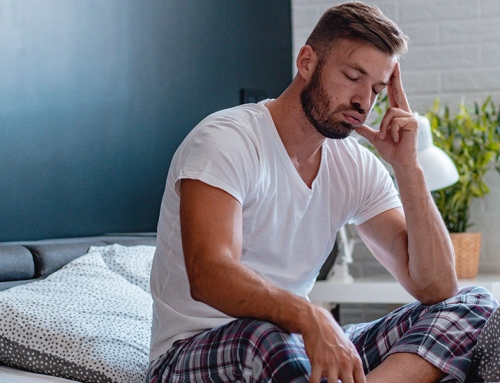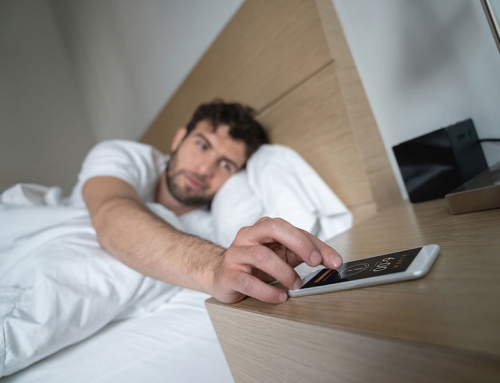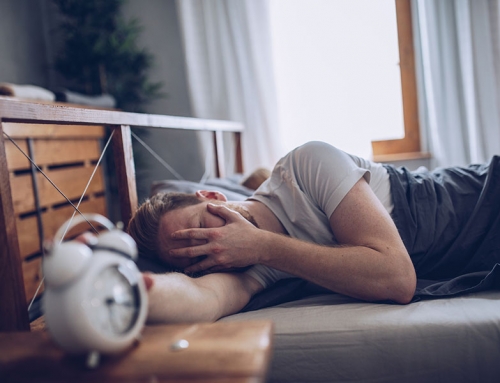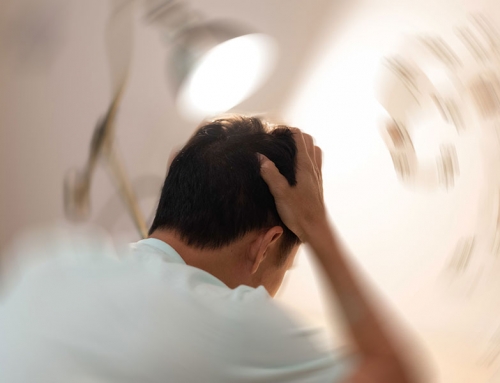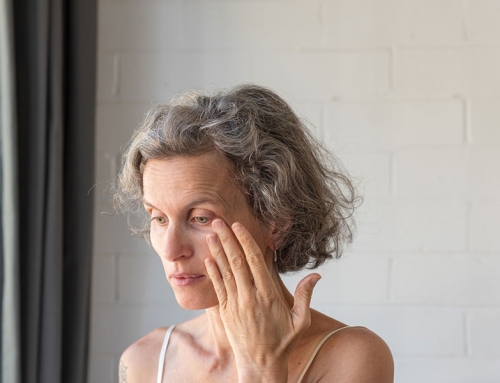If you want to start waking up at five o’clock in the morning every day—in a way that’s truly productive and not detrimental to your health—you’ll need to think big. Waking up at five a.m. is going to change your entire life, forging new routines, and setting up habits that can permanently shift your daily schedule around. In other words, the experiences of successful early risers (as we’ll see below) tell us one thing for sure: It’s not possible to wake up at five a.m. every day and continue living your current life.
It might seem silly to say, but this kind of lifestyle change is a big deal. So, before setting your alarm for a few hours earlier, make sure you’re willing to embrace this level of commitment, and get ready for a wild, tiring, and challenging, but ultimately worthwhile journey!
Why are we even discussing this madness?
Sleep holds a weird place in our current culture. It’s both highly discussed, and completely ignored. While a wealth of podcasts, pop science documentaries, online articles, mindfulness apps, and self-help books have made us more knowledgeable about the science of (and need for) sleep than ever before, when it comes to putting that theory into practice, we’re failing miserably.
According to a wealth of authoritative data, we’re getting less sleep than ever. When looking into the sleep habits of America’s working population, NPR found that sleep deprivation has been rising since at least the mid-1980s. In the last decade alone, it appears that sleeplessness (defined as regularly getting less than seven hours per night) has increased by five percent, according to data from the National Health Interview Survey.
Worse, all this denial of tiredness and putting off of sleep may be having a detrimental effect on general public health. A 2019 review of literature from the journal Healthcare warns that “globally, insufficient sleep is prevalent across various age groups,” and that this epidemic may well be leading to widespread cognitive impairments and mental health issues, obesity, diabetes, and increased accidents at work and on the road (for a fascinating insight into the powerful effects of sleep deprivation on driving ability, check out this data on a six percent rise in traffic collisions, the day after daylight savings). All of which goes to show that, when it comes to sleep, going against your body’s needs is not something to be taken lightly.
So why, in an age of sleeplessness, are people considering waking up even earlier? There’s no definitive answer to this question, but talk to most early risers, and you’ll likely sense a theme: personal control. With daily responsibilities increasing, calendars becoming fuller, and work and life commitments on the rise, waking up at 5am is a way of building in extra time into the day—time that, thanks to the early morning, is quieter, calmer, and perfect for focusing on yourself. Plus, if you’re able to move your wake up time without suffering negative consequences, there’s a fulfilling sense in which you’ve carved out this extra time ‘for free’.
Who wakes up at 5am?
Before we look at some specific strategies for waking up earlier, let’s take some lessons from the experts—those people who, out of intention or necessity—have aced the 5 am routine.
The wellness wave
Writing in Self Magazine, Lindsey Lanquist collected insights into the morning routines of 39 early risers, including with their alarms set for a panic-inducing 3am. Seeing these routines collected in one place confirms the idea that morning time should be (mostly) personal time, with most using their wakeup routines to fit extra blogging or personal writing, taking care of stress-inducing email inboxes, walking, and various forms of self-care.
Here’s a couple of 5am-ish routines from some notable names: U.S. Olympic medalist swimmer and co-founder of RISE Elite, Caroline Burckle uses exercise as a natural 5:30am alarm clock. By training her body—specifically, her melatonin-managing circadian rhythm—to expect a workout at this time of the day, she’s able to engage in a refreshing and beneficial activity that acts to wake her body and mind. In a contrasting style, neuroscientist and author Darya Rose explained to Refinery29 that setting up regular bedtime and breakfast habits (plus some presumably curtain-less windows) allows her to wake up naturally with the sunrise. With her mornings, Darya then focuses on only doing things that will have a clear impact. So, no mindlessly checking emails.
Clearly, the key here is not waking up at 5am per se, but waking up at a time and manner that you decide. As this article from Inc. argues, an early alarm is often associated with success in the workplace, but that association is because successful people are more likely to think deeply about their needs and create their own schedules, and not because there’s something particularly special about 5am.
5am heroes
For some, waking up at 5am is less a personal decision than a necessity of their job or lifestyle. While it’s valid and worthwhile to discuss the wellness benefits of early morning routines, it’s also important to recognize that choice may not be a factor when it comes to the alarm clock.
For many who work in the service and food sectors, the sight of their street at dawn will be a familiar sight. The same goes for those with long commutes into the office, as well as shift workers. In these cases, finding a stable 5am routine is about building personal choice back into your morning where you can. That could mean refining your wakeup process using the advice in this article, or perhaps even choosing to wake up earlier than you really have to, giving you more time for personal activities.
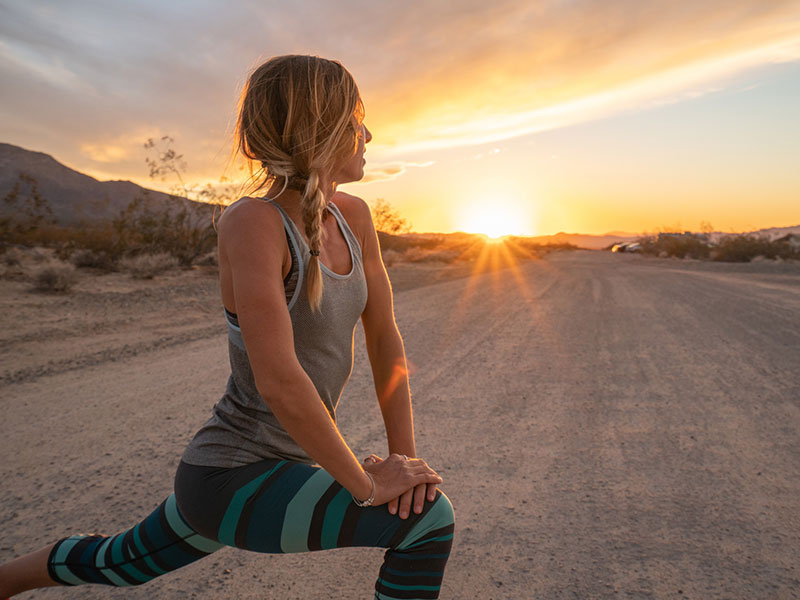
Health benefits and drawbacks
Before diving into strategies for the 5am wake up, here’s a brief overview of the things you’ll want to pursue—and things you’ll want to avoid—with your new morning routine.
Optimizing energy
Taking time to understand the basic mechanisms controlling how alert or how sleepy you feel during the day does a lot to help you hack and manage those mechanisms come morning. Much of your subjective experience of tiredness is controlled by your circadian rhythm, the cycle of hormones such as melatonin, which are released into the bloodstream according to an internal body clock.
This body clock is heavily influenced by habit and environmental light, meaning that a nightly routine of checking Instagram on a brightly lit device may well be disrupting your body’s ability to induce sleepiness and wakefulness at the right times of the day.
Because of this, any self-respecting early riser is extra-watchful when it comes to artificial light interference. You want to be looking to shut off any bright lights, particularly the blue light emitted by tech devices, around two hours before bedtime. On the same premise, you’ll want to consider allowing the light from sunrise into your bedroom in the morning (more on that below).
Cardiovascular gains
Research suggests that waking up at dawn bestows some significant benefits to your overall health—especially when it comes to your digestion and cardio levels. According to a 2015 study in the journal EBioMedicine, hour-long workouts completed before breakfast are more efficient at oxidizing fat over the course of the day than working out at any other time. Likewise, findings from a 2012 paper in Medicine & Science in Sports & Exercise suggests that exercise is an effective appetite regulator, making you less prone to impulse eating. Put these two conclusions together, and you’ve got a compelling case exercise as the first activity you should be considering upon waking.
However, these benefits don’t apply if a 5am alarm is simply making you exhausted. In fact, those gains can turn into detrimental conditions. According to SleepFoundation, a long term lack of sleep will put you at a higher risk for cardiovascular disease and coronary heart disease, no matter your gender, age, weight, or exercise regime. Again, balance is key—finding strategies that help you steadily progress towards an early waking time that feels natural, without pushing yourself so hard that exhaustion and health concerns become a real risk.
Mental and social health
On the topic of exercise, morning exercise is a great way to start the day on a positive note. You’ll also feel a sense of accomplishment, giving you an optimistic outlook for the day. Physical activity is a natural remedy for stress. During exercise, your brain makes more endorphins, the “feel-good” neurotransmitters behind a runner’s high. It also doubles as a distraction from anxious thoughts.
Waking up early can also lead to feeling like a member of an exclusive club. Start sharing your early wake-up stories around, and you may be surprised at how much bonding occurs over a mutual enjoyment of the dawn hours. At the same time, giving yourself some extra time at the beginning of the day can make you more able to listen and deal with others’ needs and issues.
Again, though, the balance needs to be right, as a lack of sleep can send you mood through the floorboards. According to a Harvard article reviewing sleep and mood studies, the evidence is clear: even getting half a good night’s sleep (4.5 hours) for several days can significantly decrease mood. A forced lack of sleep itself can also lead to issues like insomnia, which often set up a vicious cycle of bad sleep and lack of mental wellness. The same article reports a major study of 10,000 adults, which found that those with insomnia were twenty times more likely to develop a panic disorder. Because of this, it’s vital to attack your new early morning regime with a strategic plan.
Strategies
Here are four key areas for you to focus on when building your 5am battle plan. There’s definitely no one size fits all for wake-up routines, but you’re probably going to need to at least think about the following aspects of your morning.
Make it personal
First, it’s worth understanding the personal nature of this huge undertaking. As mentioned earlier, we all run a circadian rhythm determined by an internal body clock—but the exact reading on that clock differs for each of us. Add to that the fact that many of us are simply genetically or habitually prone to being night owls, which as this Fast Company article explores, is absolutely a real thing. In fact, the article goes on to point out that, depending on your chronotype (the normal calibration of your body clock relative to the actual time), you may be naturally better equipped, or not so great at being able to carry out tasks in the morning, as opposed to the night.
This means that, for an extreme group of us, waking up at five am is near-on impossible. At the other end of the spectrum as those who couldn’t imagine waking up later. But the real lesson is that there exists a large group of people who find a 5 am wake up more difficult than average. If you are one of those people, then it’s important not to compare your morning routine to others, and to continue to find strategies that work specifically for you.
Sleep setup
Unless you are one of those people with an extreme chronotype or sleep profile, there’s simply no way to wake up at 5am every morning without practicing decent sleep hygiene. Beyond being sensible with devices, caffeine, and other daytime behaviors, the surface you’re sleeping on is the single biggest factor in a good night’s sleep.
Today’s mattress market can be an overwhelming place, with so many construction configurations, including hybrid options, to choose from. Asking yourself some simple questions will help to narrow things down—what’s your budget, do you prefer a ‘sinking into the bed’ or a ‘floating’ feel, and how long do you see yourself using your new mattress? While modern cheaper foam mattresses often initially rival luxury options for softness, they degrade far more quickly. Likewise, a good pocket sprung mattress will match any memory foam product in terms of support, but won’t give you that ‘sinking in’ feeling.
Refer to our complete guide to choosing the best mattress to find one that suits you the most.
Wake up at 4.30 am to wake up at 5 am
No matter when you set your new alarm for, any change in wake-up time requires a period of adjustment, as your body clock senses the shift and gradually realigns your circadian rhythm. The more natural sunlight entering your bedroom around your new alarm, the more quickly your sleep cycle is likely to adjust.
Obviously, a 5 am sunrise only occurs at certain times of the year, meaning that, for the most part, you can’t rely upon the sun for help. This is where a dawn simulator comes in handy. Dawn simulators use a gradually brightening yellow light to mimic a sunrise (at least, from your brain’s perspective). By setting a dawn alarm clock to begin waking you up 20-30 minutes before your ideal wake-up time, your brain is more likely to be receptive to rising, when that time arrives.
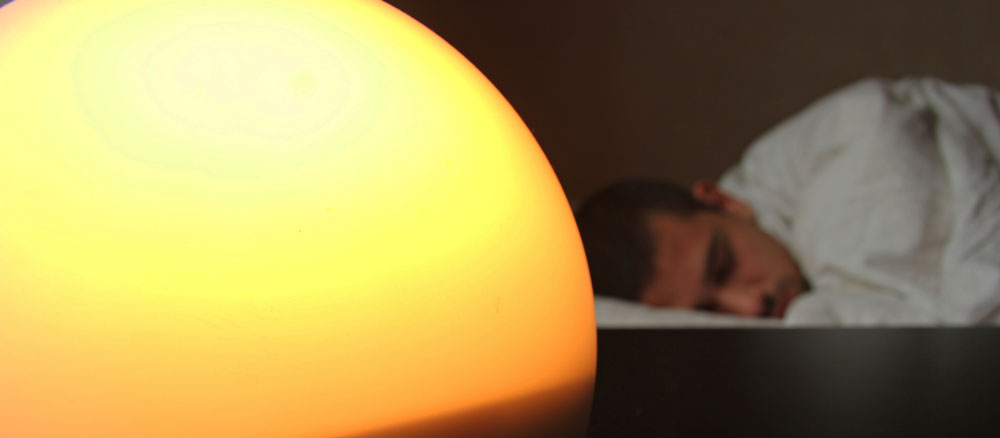
Breakfast, bedtime, and exercise
These three elements have the biggest cumulative effect on your ability to wake up at a certain time of day. Keeping a healthy regime when it comes to eating, moving, and settling down for the night is, by far, the best thing you can do for your body clock. For a more extreme example of this, just look at the most popular methods for beating jet lag, such as this rundown by major flights website SkyScanner. Almost without fail, jet lag advice always includes the recommendation to eat well, hydrate, exercise, and be mindful of your actions during your morning and evening in your new timezone.
For our purposes, there’s really no difference between traveling to a new timezone and deciding to shift your day by a few hours. So, implement the same proactive strategy as you might use for jet lag (including supplementing with melatonin in the evening, to encourage your sleep cycle), and it won’t be long before 5 am feels more natural.
The possibilities
A large part of what makes a 5am morning so appealing, is the idea that it unlocks new possibilities. With extra time comes a greater ability to complete tasks, to learn new things, and to develop more efficient or profitable ways of living. Here are a few ideas for how you might like to use your newly found free time:
New hobbies and habits
This first-person account from SimplifyYourDay on easing into an earlier morning makes for inspiring reading, and also highlights the need to have good reasons to make you want to jump out of bed. There’s an undeniable feeling of excitement and hopefulness that comes with waking at sunrise, and the best way to prolong that mood into the day is to have a few enriching activities to get stuck into.
While the above article recommends relaxing or creative activities, such as a sunrise walk, painting, or birdwatching, what you choose to do really is up to you. Whatever that passion project turns out to be though, try to keep your newfound time as personal time, away from devices, commitments, and even internal thoughts about your daily responsibilities.
New work opportunities
For the lucky few whose careers are (at least semi-) aligned with their wider dreams and goals, it may even be possible to have the best of both worlds in your morning routine. While it’s still a good idea to keep distractions and devices out of reach, the morning hours are a great opportunity for self-improvement, career progression, and spending time working on those riskier pursuits and side-projects you may have left on the back burner during your regular 9 to 5.
If you regularly use your creativity in your role—perhaps in marketing, media, or education—you might want to use the dawn hours to expand your creative portfolio, with a blog, YouTube channel, or daily collage journal. If your job is more skill-based, having a few extra uninterrupted hours may mean you’re finally able to enroll in that workplace accreditation course you’ve had bookmarked for the last year or two.
Summing up
So is waking up at 5am every morning for you? The answer to that question must be deeply personal, and the result of careful thinking about your needs and lifestyle. If you decide that an early wake up will improve your ability to go after your (day) dreams, then bear in mind these tips and warnings:
Do
- Do recognize that early waking makes good sleep hygiene extra important. If your mattress or sleep setup is resulting in blurry eyes and a stiff back in the morning, keeping on a 5 am schedule is going to be that much more difficult.
- Do remember that everyone has their individual chronotype, and that we all exist on a spectrum when it comes to natural bedtimes and mornings. Night owls will take longer to adjust to a morning routine, which means that it’s never a good idea to judge your own progress by looking at others.
- Do feel excited and inspired about waking up at 5 am! It’s a sizable achievement that only a few can manage, and it unlocks some of the most precious and personally valuable hours of the day, for you to do whatever you like with.
Don’t
- Don’t think that a new 5 am routine is achievable in a week, or even in a month. Fully shifting your sleep/wake cycle takes time, and perhaps the worst thing you can do for your chances of 5 am success is to go too hard, too early—leading to inevitable exhaustion.
- Don’t focus all your energy on 5 am, neglect other important parts of the day that contribute to how you feel in the morning. When and how often you exercise, what you eat, and how much blue light you consume before bed, all have a significant impact on waking.
- Don’t keep your 5 am habits to yourself! While these hours are most definitely yours, there’s a whole community of morning larks out there, waiting to share their wake-up advice and tips for early morning activities with you, giving you ideas you may want to try yourself.

